Question And Answer
Publications
Articles, publications, books, tools and multimedia features from the U.S. Institute of Peace provide the latest news, analysis, research findings, practitioner guides and reports, all related to the conflict zones and issues that are at the center of the Institute’s work to prevent and reduce violent conflict.
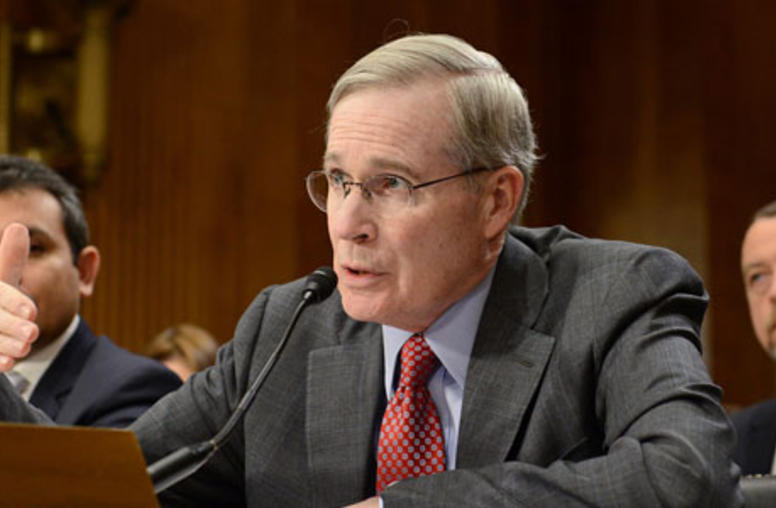
Stephen J. Hadley Testifies on the New START Treaty
Stephen J. Hadley, senior adviser for international affairs, testified before the Senate Committee on Foreign Relations on the new START Treaty on June 10, 2010.
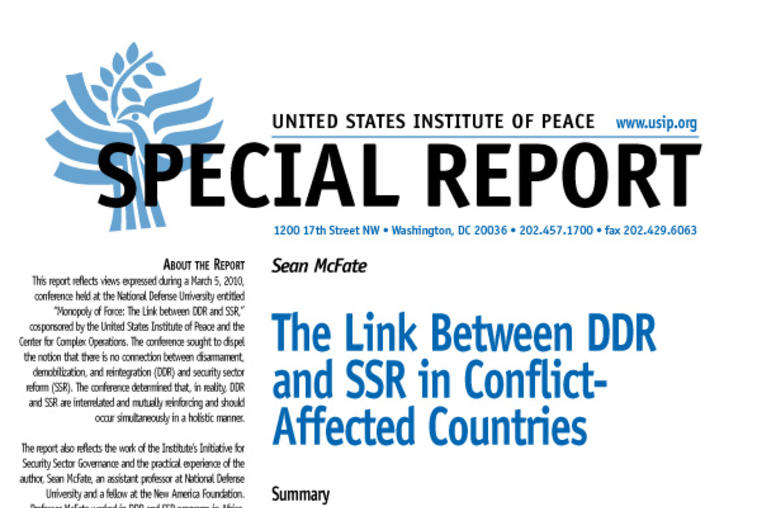
The Link Between DDR and SSR in Conflict-Affected Countries
Summary Disarmament, demobilization, and reintegration (DDR) and security sector reform (SSR) processes should be interrelated and mutually reinforcing. As DDR and SSR share the same objective--consolidation of the state’s monopoly of force to uphold the rule of law--they succeed or fail together and should be planned, resourced, implemented, and evaluated in a coordinated manner. The natural point of intersection for DDR and SSR is in the reintegration phase, as many ex-combatants find...
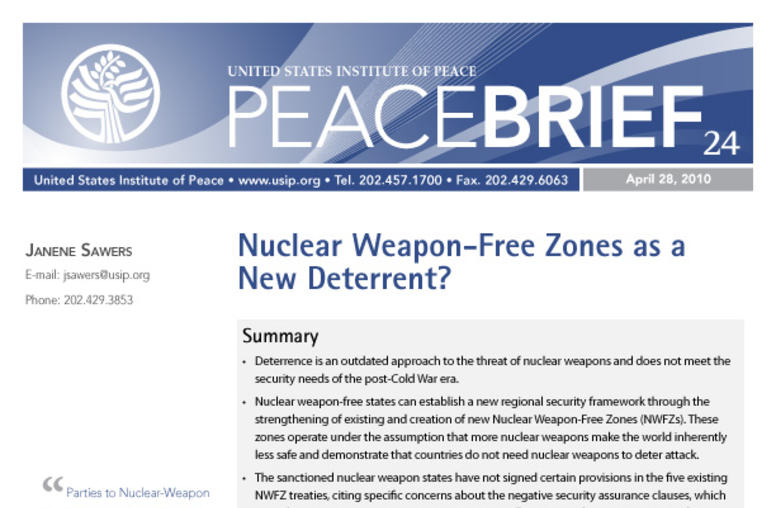
Nuclear Weapon-Free Zones as a New Deterrent?
Nuclear weapon-free states can establish a new regional security framework through the strengthening of existing and creation of new Nuclear Weapon-Free Zones (NWFZs). These zones operate under the assumption that more nuclear weapons make the world inherently less safe and demonstrate that countries do not need nuclear weapons to deter attack.
The Sinking of South Korea’s Naval Vessel
The Cheonan, a 1,200-ton South Korean naval vessel, sank on March 26 when an explosion split it apart in one of the country’s worst naval disasters. North Korea has officially denied involvement and accused South Korean President Lee Myung-bak of using this tragedy to bolster support for his hard-line North Korea policy.
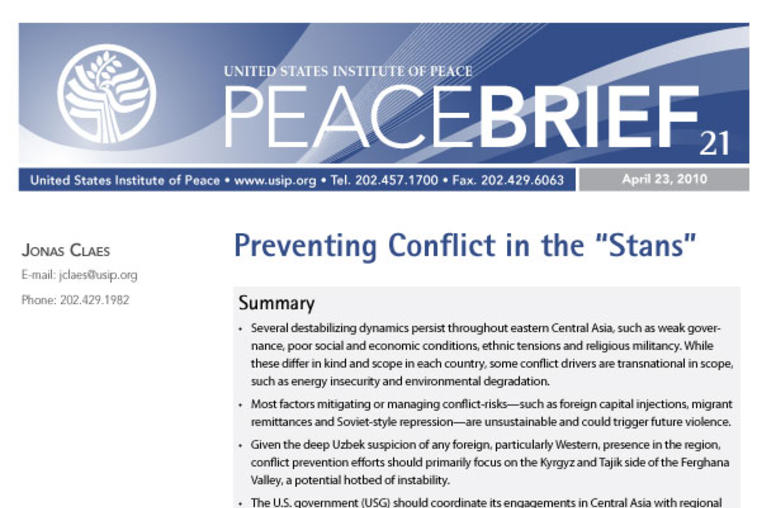
Preventing Conflict in the "Stans"
Several destabilizing dynamics persist throughout eastern Central Asia, such as weak governance, poor social and economic conditions, ethnic tensions and religious militancy. While these differ in kind and scope in each country, some conflict drivers are transnational in scope, such as energy insecurity and environmental degradation.
Nuclear Summit Wraps, Creating Momentum to Bolster Security
At the Nuclear Security Summit on April 12 and 13, leaders from around the world pledged to take their own steps to secure nuclear material used in bombs, civilian nuclear reactors and power plants, and to work together to enhance overall security.
On the Issues: the New START
Ambassador Jayantha Dhanapala explains the significance of the new Strategic Arms Reduction Treaty (START), as signed by U.S. President Barack Obama and Russian President Dmitry Medvedev on April 8, 2010.
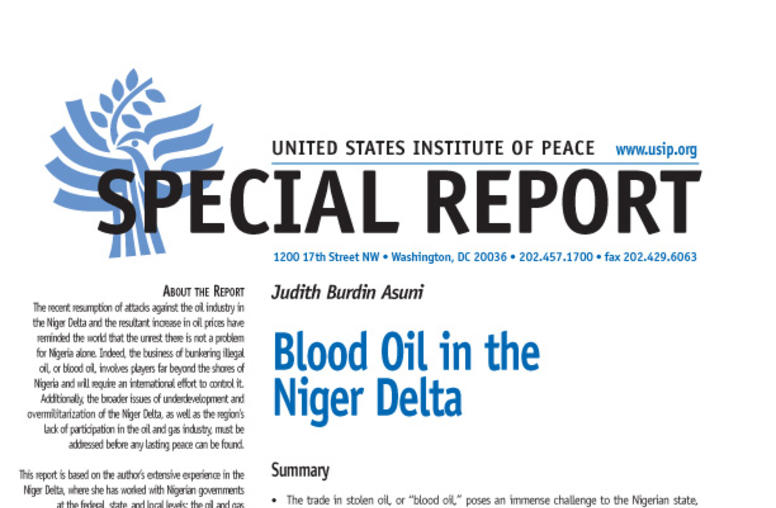
Blood Oil in the Niger Delta
The trade of stolen oil, or “blood oil,” in Nigeria is fueling a long-running insurgency in the resource-rich Niger Delta region that has claimed many lives. Oil “bunkering” – or theft – has fomented the armed conflict in the region, providing militant groups with funds to purchase weapons, and has increased instability in oil prices on world energy markets. Nigerian President Umaru Yar’Adua in July 2008 asked the Group of Eight nations for help in dealing with the problem, but no concrete ac...
On the Issues: North Korea
One day after North Korea’s nuclear test drew widespread condemnation, the country on May 26th test-launched two more short-range missiles. This marks Pyongyang's second nuclear test, after its first in October 2006. Amid rising tensions on the Korean peninsula, South Korea joined the Proliferation Security Initiative, a U.S. initiative to curb the trade of weapons of mass destruction, an action North has called a declaration of war.
On the Issues: North Korea
The White House said North Korea had taken "a serious step in the wrong direction" when the regime expelled international inspectors from the country and announced it would restart its nuclear program. USIP’s John S. Park provides regional context to the latest developments.